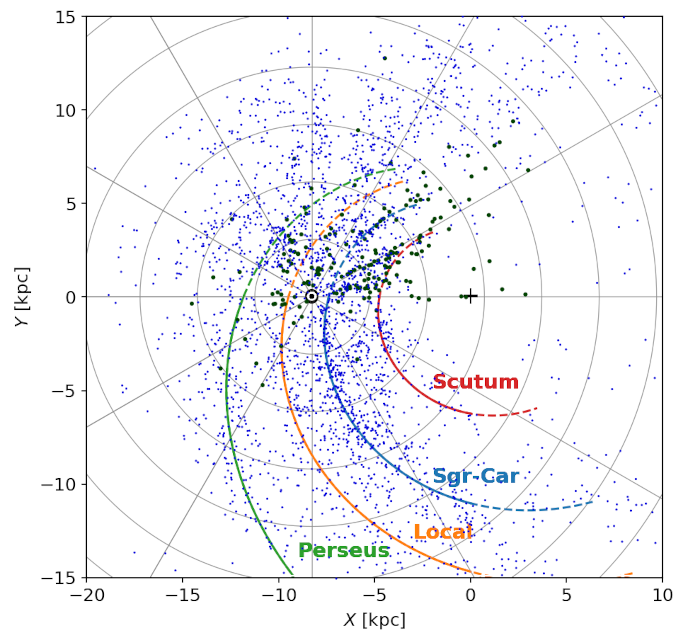Cepheids are a type of variable star for which the periodicity in the change in brightness is related to the intrinsic brightness of the star, and this relation is known as Leavitt’s Law. This makes Cepheids excellent standard candles, that is, stars for which distances can be determined directly from their apparent brightness and their derived intrinsic brightness. Cepheids have thus been used extensively to map the structure of our Milky Way, in particular to understand the structure of its spiral arms and the shape of the Milky Way disk (which is known to be warped).
The map below shows the locations of the known Cepheids in the Milky Way and provides a good illustration of how the selection function for Gaia limits our view of the Milky Way disk structure on the far end of the Galactic centre (notice that there are much fewer Cepheids on the right hand side of the map), and in other directions where clouds of interstellar dust causes more distant stars to be too faint for Gaia to see.
The interactive version of the map below lets you toggle the different components of the plot.

